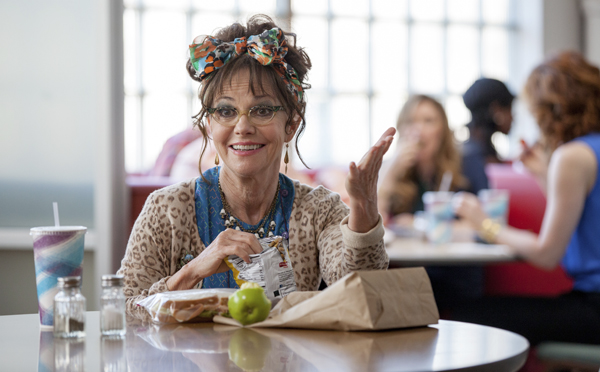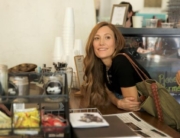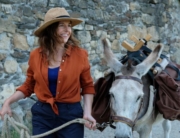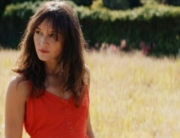Wearing its heart on its colorful sleeve, this film works very hard to have the central character make sense. However, the more director Michael Showalter sends up comedic flares and adds in backstory details with co-writer Laura Terruso, who first created Doris in a short student film, the less she jells.
The movie opens at the most traumatic day in the life of 60-something Doris Miller (Sally Field), the funeral of her mother, who she had been living with for decades. Her brother, Todd (Stephen Root), and sister-in-law immediately nag her to move out and sell the Staten Island house. They even enlist therapist Dr. Sylvia Edwards (Elizabeth Reaser) to continue the pressure, because Doris is thisclose to being a hoarder.
But, surprisingly, she is not a recluse. On the way to and from work in Manhattan, she picks up treasures in the trash that mean as much to her as her mother’s many souvenirs. Now a bit unmoored, she looks up in the office elevator and is immediately struck by infatuation fantasies for a young man—which are straight out of the romance novels she devours. He turns out to be the new art director, John Fremont (Max Greenfield), in her advertising agency, just in from California. Though this firm is now, through many takeovers, the kind of hip, open cubicle environment where Kumail Nanjiani cracks wise as a co-worker, like he does in HBO’s Silicon Valley, Doris has inexplicably been kept on in the accounting department.
While she evidently has been able to adapt to computer skills at work, she needs the help of the 13-year old-granddaughter of her delightfully caustic best friend, Roz (Tyne Daly), to figure out how to Google John and to set up a fake Facebook account (under a flowery romance novel name) to flirt with, and cyber stalk, him. (I couldn’t help comparing her catfishing to Congressman Anthony Weiner tripping farther over the generational social media line, as seen in the new documentary Weiner.) Her office fantasies continue (it’s a running gag that the audience can almost believe these passionate interactions are real), but Doris steps out of her comfort zone into the lives of millennials in hipster Brooklyn in order to share his interests, and even those of her competition: his blonde girlfriend who just happens to be named Brooklyn (Beth Behrs, much sweeter here than in CBS’s 2 Broke Girls).
With costume designer Rebecca Gregg dressing Field in almost 50 layered outfit changes to look as colorfully eclectic as Iris (as in Apfel), Doris is a retro hit in Williamsburg. She’s all in, from knitting with Brooklyn on a roof top girl-date to pogoing along with John at a packed club in a bright yellow ’80s-era jumpsuit to his favorite band, Baby Goya and the Nuclear Winters (led by Jack Antonoff, of the Bleachers and Fun). Even the band and their photographer notice her “fresh vintage” look, which is all fun.
Meanwhile, disapproving Roz and their friend Val (Caroline Aaron) keep trying to drag Doris back into what they consider age-appropriate activities of exercise, cards, self-help lectures, and their traditional Thanksgiving. (Peter Gallagher, as a motivational speaker/guru, takes part in a needless side story). It’s a head-scratcher why Doris is condescendingly treated by all as if she’s the elderly eccentric played by Dame Maggie in The Lady in the Van, when she is actually a baby boomer within the modern world. Ironically, her gleeful vacation from maturity releases her to grow up from her stunted life—she confesses to a youthful romance, throws back at her brother for dumping responsibility for their mother on her all those years, and reduces Roz for bitterly wallowing in her widowhood.
Though her arc isn’t completely convincing, Doris can finally face them all, moving from “This house is my whole life!” to “I have nothing to look forward to!” to “I can take care of myself!”







I was hopeful until the bitter end, that Doris would recognize her infatuation with the new, much younger guy in the office, as her undiscovered yearning to finally start living her life, once her mother’s death frees her to do so. And at first, it works, to give her the motivation to begin this process. But, after painfully realizing she’s mistaken, and coming to grips with some other things she’s been struggling with, instead of seeing her have some sort of epiphany where she realizes she doesn’t need a man 40 years younger than her to “make her happy”, and doing the more difficult work of showing how she trades this fantasy for being happy with who she can become, the filmmakers take the lazy way out and leave her mired in her unrealistic, and to me, creepy fantasy world. I kept thinking, the cringe-worthy imagined romantic scenes with the younger man, plus her mean-spirited meddling with the guy’s girlfriend, would be far from cute or funny, if she were a 60-something man. I’m a 65yr-old woman, and I went in cautiously optimistic, but, I’ sorry to say, this movie was sad and wrong in even more ways than I’ve mentioned and I was sorely disappointed!